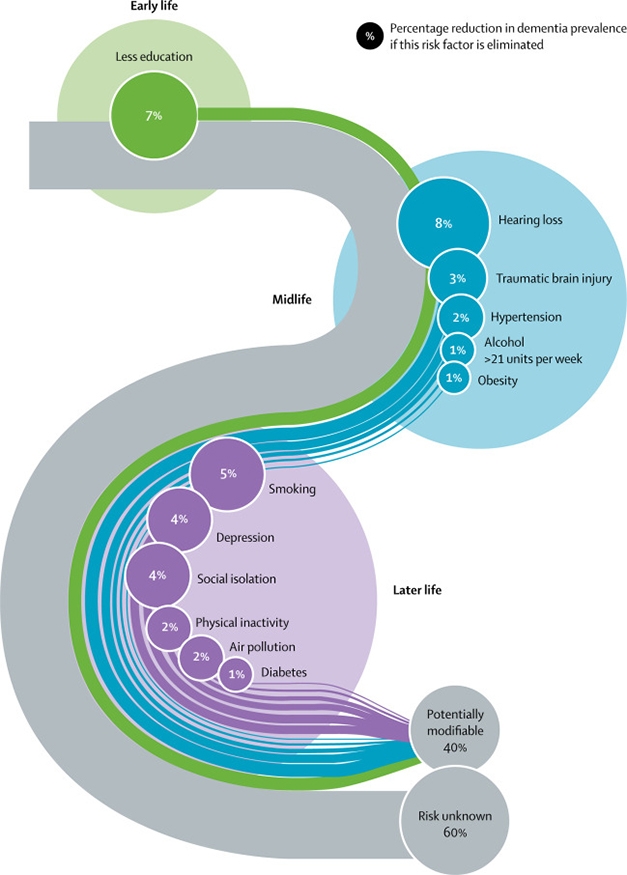The Lancet is one of the premier scientific journals in medicine. We wrote back in 2022 of the results of the work of the Lancet commission on dementia. With the unlikelihood that an outright cure for Alzheimer's disease would appear anytime soon, the commission's report highlighted a list of the modifiable lifestyle and other factors that influence the development of the disease. They will be familiar to anyone who has read Beating the Dementia Monster or who follows this blog. They were:
- physical inactivity,
- excess alcohol consumption,
- obesity,
- smoking,
- hypertension,
- diabetes,
- depression,
- traumatic brain injury,
- hearing loss,
- few years of education,
- social isolation, and
- air pollution.
The 2022 report included this graphic which showed how the different risk factors map out over someone's lifetime. Note their conclusion that 60% of the total factors are simply unknown. Nevertheless, 40% are potentially modifiable - things you can do to affect your susceptibility to the disease.

Then, just last year, the commission released a new study which updated their conclusions. They noted that, as people live longer, the number of people who live with dementia continues to rise. But they also noted that, as the age-specific incidence decreases in high-income countries, there is a need to identify and implement prevention approaches. So much of the report's recommendations focus on changes in governmental policy.
The main takeaways from the new report (after acknowledging the original report) is the addition of two new risk factors: vision loss and high LDL cholesterol (i.e., "bad cholesterol"). But they also said, "The potential for prevention is high and, overall, nearly half of dementias could theoretically be prevented by eliminating these 14 risk factors. These findings provide hope." They also said, "Although change is difficult and some associations might be only partly causal, our new evidence synthesis shows how individuals can reduce their dementia risk."
I am still waiting for the Alzheimer's Association Facts and Figures Report for 2025. In the past, this has been a rich resource, even richer than the Lancet's dementia commission reports. But they still haven't published it. You can, however, add it to your "wish list" -- which I did. I presume this means they're still working on it, and we'll see it soon. In the past, it's been available during the first week in March. Oh, and, here's a first: I'll need to pay for it now. Not free anymore. But I can afford the $7.95.

No comments:
Post a Comment